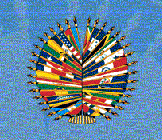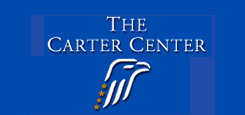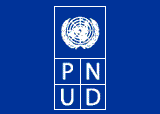The Washington Post
Violence Stalks Peace Efforts in Venezuela
Reuters
Wednesday, November 13, 2002; 2:31 PM
By Pascal Fletcher
CARACAS, Venezuela (Reuters) - As Venezuelan President Hugo Chavez and
his foes wrangle over possible elections, violence is flaring on the
streets and threatening to derail efforts to end the political war
rocking the world's No. 5 oil exporter.
Tensions remained high in Caracas on Wednesday after riot police and
troops battled for the second time in just over a week on Tuesday with
fanatical supporters of the left-wing president who were attacking
members of the opposition.
In confused exchanges of gunfire, shotgun pellets, tear gas, stones
and bottles, one person was killed and at least 20 wounded as the
streets of this bustling South American capital turned into a smoke-shrouded
battleground.
Troops and angry Chavez supporters faced off in the capital on
Wednesday but no new clashes were immediately reported.
About 20 people were injured in politically motivated violence last
week.
The fighting provided a dramatic backdrop for peace talks aimed at
ending the bitter political feud between former paratrooper Chavez and
opponents who reject his self-proclaimed "revolution" in Venezuela.
Peace talks began on Friday and continued on Wednesday.
Seven months after the populist president survived a brief coup by
rebel military officers, many wonder if the oil-rich nation may be
heading for a replay of the chaotic April events in which more than 60
people were killed in street violence.
"We can't allow a repeat of April," Organization of American States
Secretary General Cesar Gaviria said late on Tuesday in an appeal to
government and opposition negotiators taking part in the peace talks.
CHAVEZ 'REAPING WHAT HE HAS SOWN'
Referring to Tuesday's mayhem, Gaviria said, "We must not recreate at
the negotiating table what is happening in the streets."
Despite Gaviria's stance, many observers doubt the peace talks can
succeed.
"There is no way this process can avoid ending in violence on the
streets because the points of agreement between government and
opposition are practically nil," Luis Vicente Leon of pollsters
Datanalisis told Reuters.
Late on Tuesday, the government berated the opposition for "joining
coup plotters" -- a reference to rebel military officers in the anti-Chavez
coalition -- while the opposition accused the government of trying to
sabotage the peace talks with "acts of terrorism."
The disparate but determined opposition coalition of politicians,
labor and business chiefs and military dissidents is pressing Chavez
to accept an immediate national referendum on his rule. Chavez was
democratically elected in 1998.
But the outspoken Venezuelan leader, who rejects charges by his foes
that he is trying to install Cuban-style communism in Venezuela,
refuses. He says his opponents must wait until August 2003 -- halfway
through his current term -- when the constitution allows for a binding
referendum on his rule.
Many analysts blame Chavez for a climate of violence and impunity in
Venezuela. They say his revolutionary rhetoric and repeated verbal
attacks against his political foes over the last year are stoking a
class war in a country where massive oil wealth contrasts sharply with
high levels of poverty.
Despite the political violence, few arrests have been reported and the
government seems to be doing little to rein in its supporters.
Ironically, Chavez complains of judicial "impunity," referring to a
Supreme Court ruling in August that said the alleged military
ringleaders of the April presidential coup should not be tried for
rebellion.
The same rebel generals and admirals, many of whom have been ordered
into retirement by Chavez but still proudly wear their uniforms, are
leading a three-week-old public protest against him in a Caracas
square, cheered by civilian backers.
© 2002 Reuters
http://www.washingtonpost.com/wp-dyn/articles/A49256-2002Nov13.html


